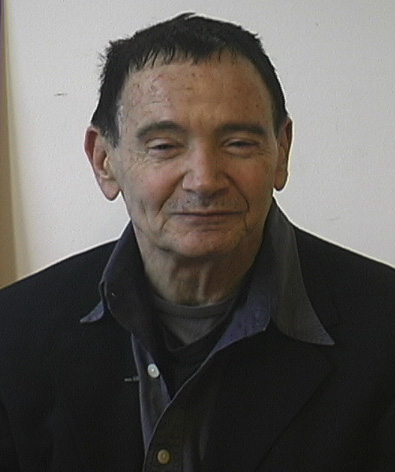Bookwriter
Allan Knee is on a roll. Granted, this roll started
well over a hundred years ago, but the popularity Allan enjoys today is based
on the universal themes of love, humanity and coming
of age that winds throughout his many works, as well
as the original works of his adaptations. In addition
to the decade he has spent adapting Louisa May Alcott's
Little Women to the stage,
Knee was also most recently the creator of the play
The Man Who Was Peter Pan,
made into the popular Oscar-nominated film Finding
Neverland.
ago, but the popularity Allan enjoys today is based
on the universal themes of love, humanity and coming
of age that winds throughout his many works, as well
as the original works of his adaptations. In addition
to the decade he has spent adapting Louisa May Alcott's
Little Women to the stage,
Knee was also most recently the creator of the play
The Man Who Was Peter Pan,
made into the popular Oscar-nominated film Finding
Neverland.
"I'm
proud of both of them," Allan smiles, when Finding
Neverland is mentioned. (He's too modest
to bring it up himself.) "They're both different
visions and yet they both have a great deal of heart.
If I can be proud about anything in my life, it's how
I've grown. I wouldn't say I was heartless, but I was
pretty closed off. And over the years I have opened
up. And when I see Little Women
or Finding Neverland, they're
like endorsements of my own opening up as an individual.
In some ways it doesn’t surprise me that they
both were released about the same time. How I got here,
I don't know, but I know it's where I wanted to go."
"I've
done a lot of adaptations," he adds. "I've
done The Scarlet Letter, I've
done Around the World in 80 Days.
What you try to do is, you have to be true to the soul
of the story, the essence of the story, the heart of
the story. If you're not identifying with the heart
of the story, then don't adapt it—adapt something
else."
Do I detect a trend, here?
"I
love the nineteenth century," Allan nods. "I
love nineteenth century New England, and I loved the
writers from the nineteenth century New England: Hawthorne,
Melville, Thoreau, and Louisa May Alcott. When I see
a writer like Jo March, like Louisa May Alcott, J. M.
Barrie, young Peter in Finding Neverland—these
are budding writers. These are people trying to accept
their own uniqueness. These are people struggling with
life, both in an emotional way and in a literary way,
and that encompasses me. That totally enrapts me. I
want to write about it, I want to explore it."
Allan sees the rites of passage from childhood to adulthood
as a critical moment everyone undergoes. Each of the
four March sisters must make this transition in her
own way—through marriage, through career, even
through death. But, Allan is quick to point out, there
are four men in the show, too, each going through his
own transition as well. They are a source of special
pride for him.
Allan especially identifies with Professor Bhaer, seeing
Bhaer's slow blossoming over the course of the show
as a mirror of his own gradual awakening. Of course,
he also sees himself in the ambitious Jo March, the
would-be writer and heroine of Little Women.
But surprisingly, Allan admits to another identification,
one that's "slightly embarrassing".
"I
adore Amy, the youngest March sister," he laughs.
"Amy's spoiled, the irritant, always wanting things,
always feeling she never has enough. Anyone who's a
younger sibling knows that feeling. You always feel
like, 'When's MY chance going to come? When is it going
to be for ME?'"
Clearly, Allan's chance is now, though he's so modest
and unassuming you might not know it to talk to him.
Any Amy-ish basking in all this recent attention is
not outwardly evident. Make no mistake, Allan is justifiably
proud of his accomplishments. But he is quick to point
out there are no shortcuts to success—only a long,
hard slog.
"I
have never given up," he says. "I've gotten
letters recently from friends who have known me twenty,
twenty five years, and they said 'I know how much being
a writer means to you, and you've never quit. And here
you are, on Broadway, and doing other things, and it's
just amazing.'"
"You
know, we're given one chance on this earth,"
he adds, half to himself. "Jo March knows
that. She doesn't want to waste it. I know that.
I don't want to waste my chance. I've always
dreamed big. I've taken it a step at a time,
but I've never allowed myself to quit. And I
still have tons of dreams. I'm still dreaming
big. It will never stop."
|





